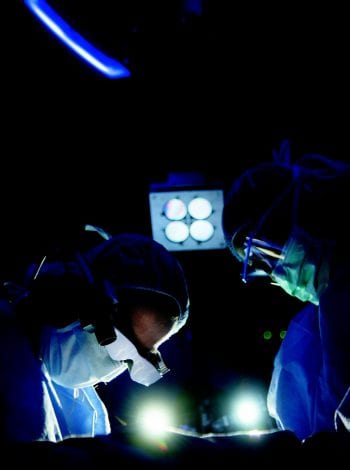Focus: Improve access in underserved areas

Obtaining timely access to high-quality cancer care is essential for optimizing outcomes in patients with cancer.* Where breast cancer is concerned, a global report concluded that “improving access and utilization of breast care programs can impact breast cancer incidence and survival.”†
In several major efforts to meet the needs of more medically underserved women in north St. Louis County, the Department of Surgery and the Alvin J. Siteman Cancer Center at Barnes-Jewish Hospital and Washington University School of Medicine staff a breast surgery practice at Christian Hospital as well as a new satellite Siteman facility.
Virginia Herrmann, MD, opened her practice in 2014 before moving to the Siteman Cancer Center at Barnes-Jewish St. Peters Hospital in 2018. Katherine Glover-Collins, MD, PhD, began in 2016 and continues to treat breast cancer patients at Christian. She treats a patient population that is over 68 percent African-American. Her patients often have co-morbidities: obesity, poorly controlled diabetes, uncontrolled hypertension and kidney disease, including some needing hemodialysis. She then offers a key component of breast cancer care: adjusting treatment to reduce the risk of significant additional health conditions for women undergoing surgery.
“Caring for these patients is a little more complex than just dealing with the breast cancer,” says Herrmann. “There are more risks associated with treatment.”
African-American patients also are more prone to triple-negative disease, an aggressive form of breast cancer that has a higher mortality rate. With the opening of the Siteman North County facility in July 2017, breast cancer patients now have expanded and easier access to multiple clinical trials, including ones for triple-negative disease. The facility currently has 22 breast trials that are actively accruing out of 78 trials that are open, or about to open.
“We are treating patients at earlier stages,” says Glover-Collins. “Our goal is to develop more clinical trials here. Many patients are reluctant to enroll in Siteman trials at the St. Louis center because it seems too big or they have other barriers.”
The Siteman mobile Mammography Van routinely offered free breast cancer screenings to women in north St. Louis County before the center opened, screening 2,019 north county women in the 30-month period ending in June 2018.
The two breast surgeons have treated more than 1,400 patients since 2014. With the expanded services and clinical trials, Glover-Collins says, “It’s just a matter of getting the word out.”
*Challenges and Solutions to Improving Access to Cancer Care,” ASCO Daily News, May 26, 2016.
†Planning: Improving Access To Breast Cancer Care,” Knowledge Summary, Union for International Cancer Control.
Highlights
Breast surgeon Julie Margenthaler, MD, is testing high-tech “cancer goggles,” or glasses that help surgeons visualize cancer cells. Blue dye injected into a patient’s tumor can be viewed with the goggles and infrared light. Margenthaler, who works with radiology professor Samuel Achilefu, PhD, has participated in two pilot studies to perfect the technology. Achilefu now is seeking FDA-approval to start a wide-scale, multi-institutional clinical trial of the device.
Rebecca Aft, MD, PhD, led a study analyzing patterns of differential gene expression in mice transplanted with bone marrow from five breast cancer patients. The study found unique and reproducible patterns of differential gene expression that presumably originated from disseminated tumor cells (DTCs) in the bone marrow of the animals. Several of the identified genes also are detected in the bone marrow of breast cancer patients who develop early metastases, suggesting they may be biomarkers used to identify and target metastatic cancer. The study was published in the January 2018 issue of Breast Cancer Research.
Surgeon Virginia Herrmann, MD, leads the High-Risk Breast Cancer Clinic at the Siteman Cancer Center at Washington University and Barnes-Jewish Hospital. In most institutions, the position is held by an oncologist instead of a surgeon — a notable recognition for Herrmann. Referred patients typically have a strong family history, genetic mutations or atypical findings that put them at risk for breast cancer. Clinicians also discuss postoperative therapy with patients who have carcinoma in situ, or a group of abnormal cells that may become cancerous. Herrmann reports these patients are often more anxious than those with diagnosed breast cancer.
